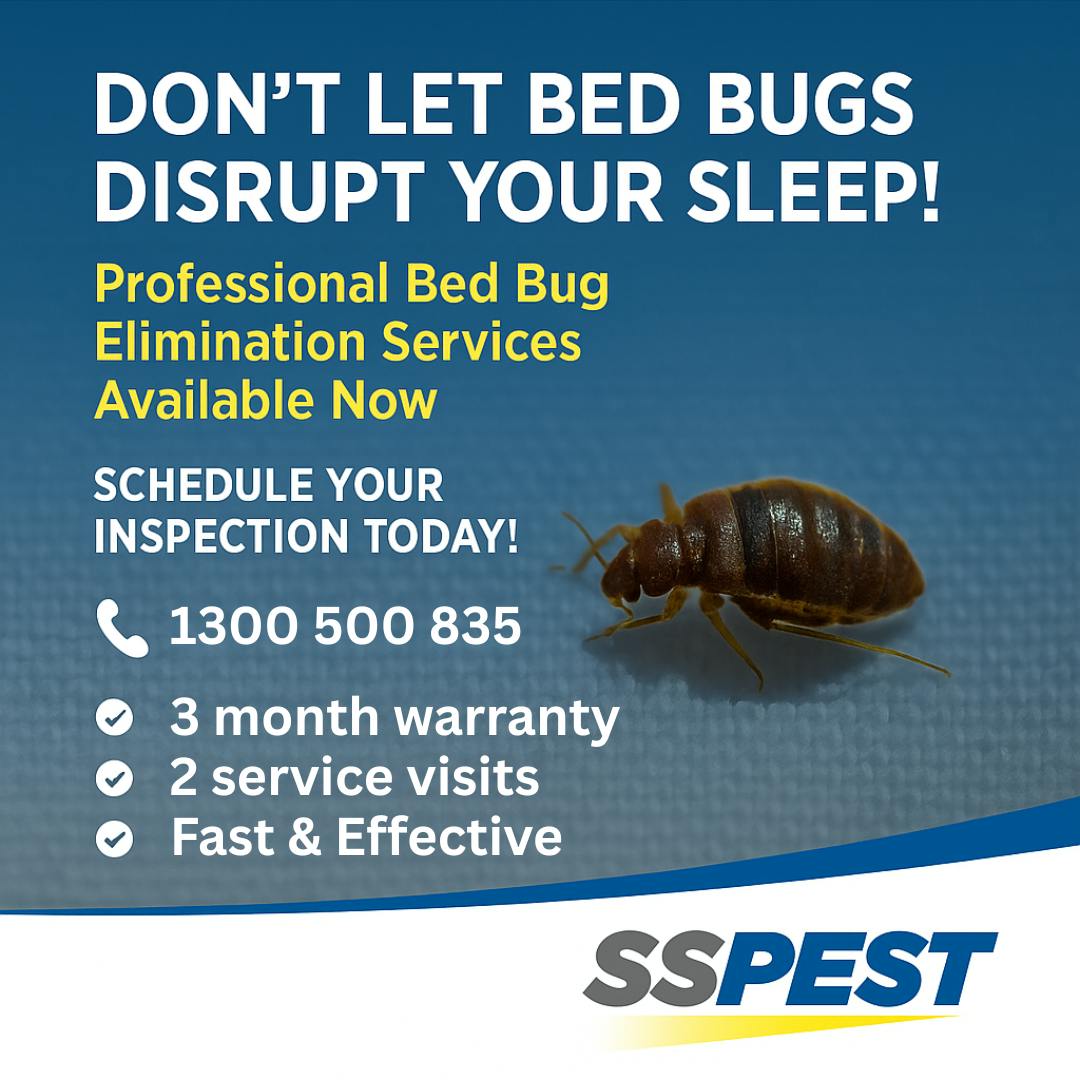Caring for elderly residents goes beyond healthcare—it includes maintaining a clean, safe, and pest-free environment. In nursing homes across Sydney, certain pests pose health risks that can be especially serious for seniors due to age-related sensitivities and weaker immune systems. Here are five pests that can affect aged care residents and how to help prevent them.
1. Bed Bugs
Bed bugs feed on human blood and are excellent at hiding in mattresses, seams, and furniture. While they don’t spread disease, their bites cause severe itching, irritation, and sleep disturbances. In older adults, prolonged exposure may lead to infections from scratching or emotional stress.
Prevention Tips
- Inspect bedding and seams regularly
- Launder sheets in hot water weekly
- Treat infestations immediately with professional help
2. Spider Bites
While most spiders are harmless, bites from species like redbacks or white-tailed spiders can cause pain, swelling, and in rare cases, allergic reactions. Elderly individuals may have slower healing times and heightened reactions.
Prevention Tips
- Keep storage areas and under furniture clear
- Seal cracks and install screens on windows
- Call pest control at the first sign of infestation
3. Wasp Stings
Wasps can become aggressive if their nests are disturbed. For elderly residents, a sting may cause serious allergic reactions or trigger medical emergencies, especially in those with heart or respiratory issues.
Prevention Tips
- Keep food covered during outdoor activities
- Regularly inspect for nests around eaves and garden areas
- Seek immediate medical care for any signs of allergic reaction
4. German Cockroaches
German cockroaches are a major concern in shared kitchens and dining areas. They spread bacteria that can cause food poisoning and worsen respiratory conditions like asthma—especially in seniors with compromised immunity.
Prevention Tips
- Clean food prep areas thoroughly
- Store food in sealed containers
- Arrange regular pest inspections and treatments
5. Rodents (Rats and Mice)
Rodents are more than a nuisance—they chew through wires, damage insulation, and carry diseases like leptospirosis and salmonella. Their presence in aged care facilities can lead to health violations and pose real risks to residents.
Prevention Tips
- Seal entry points and keep storage areas clean
- Dispose of waste promptly and store food properly
- Use bait stations and call pest professionals for control
Keeping Nursing Homes Safe and Pest-Free
Protecting elderly residents from pests isn’t just about comfort—it’s about their health and dignity. Partnering with a professional pest control provider like SSPEST ensures thorough inspections, eco-friendly treatments, and lasting results tailored to aged care environments.
Need help protecting your aged care facility? Contact SSPEST for reliable, discreet service in Sydney.












